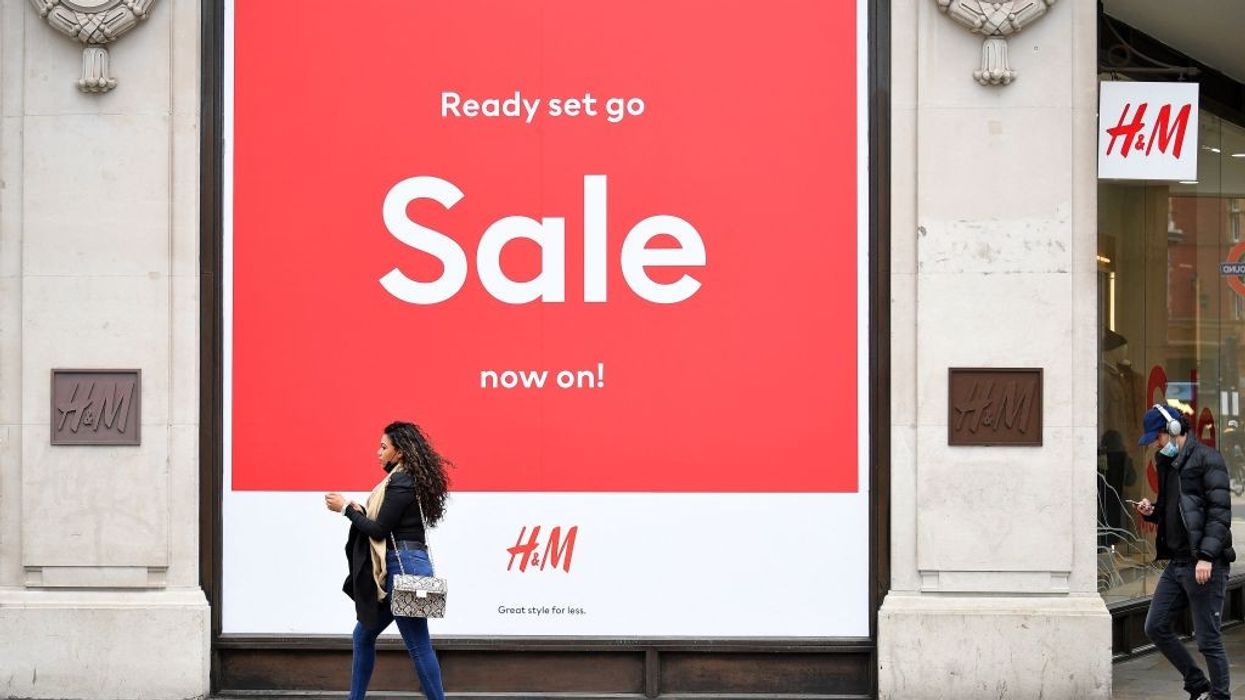BRITISH inflation spiked close to a decade-high in October partly on higher energy bills and resurgent post-lockdown demand, official data showed on Wednesday (17), sparking fresh talk of an interest rate hike.
The annual rate jumped to 4.2 percent, the highest level since November 2011, the Office for National Statistics said in a statement.
That followed 3.1 per cent in September and was more than double the Bank of England's 2.0-per cent target - prompting speculation over a rate hike after Tuesday's (16) upbeat unemployment data.
Rising consumer prices ramp up the cost of living, especially when wages fail to keep pace.
'Driven by energy bills'
"Inflation rose steeply in October to its highest rate in nearly a decade," ONS chief economist Grant Fitzner.
"This was driven by increased household energy bills due to the price cap hike, a rise in the cost of second-hand cars and fuel as well as higher prices in restaurants and hotels.
"Costs of goods produced by factories and the price of raw materials have also risen substantially and are now at their highest rates for at least 10 years."
Inflation leapt on higher prices for domestic electricity and gas, as well as motor fuel which faced shortages.
UK authorities in October lifted the so-called energy price cap, which limits standard variable tariffs charged by domestic energy providers.
Second-hand car prices meanwhile rose as a worldwide semiconductor shortage dents new vehicle production.
Inflationary pressures were also fuelled by the global supply crunch and the soaring cost of raw materials.
The BoE had this month kept its key interest rate at a record-low 0.1 percent, but flagged a likely hike in the coming months to dampen inflation.
Central banks use rate hikes to try and dampen high inflation, which is weighing on companies and consumers globally.
As countries reopen from pandemic lockdowns, businesses are struggling to meet demand for goods and services, sending inflation soaring.
"Many countries are experiencing higher inflation as we recover from Covid and we know people are facing pressures with the cost of living," said finance minister Rishi Sunak in response to the data.
Markets had expected the BoE to raise its main rate in November for the first time in more than three years.
The BoE stance contrasts with other global central banks, including the US Federal Reserve, which are tightening monetary policy as growth recovers and inflation spikes.
US inflation had rocketed to a 30-year high of 6.2 per cent in October.
Data 'may seal rate hike'
"Today's inflation data will reinforce the Bank of England's resolve to act," said KPMG UK economist Yael Selfin.
"While not unexpected, confirmation that inflation is moving further away from its target may seal the Bank of England's resolve to raise rates in December, following the strong labour data."
BoE Governor Andrew Bailey on Monday expressed growing unease over spiking prices.
"I'm very uneasy about the inflation situation -- I want to be very clear on that," Bailey told a committee of lawmakers.
"It is not of course where we wanted to be, to have inflation above target."
(Reuters)




